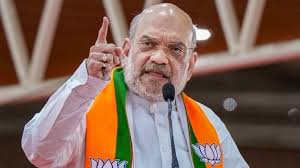New Delhi, April 25, 2025: India has officially suspended the Indus Waters Treaty (IWT) with Pakistan, following a meeting chaired by the country’s Home Minister. The move comes in the wake of a deadly terrorist attack near Pahalgam town in Jammu and Kashmir, which killed 26 people, including 25 Indian nationals and one Nepali citizen. This escalation has prompted the Indian government to reconsider its water-sharing agreement with Pakistan, which has been in place since 1960.
The Indus Waters Treaty, signed after nine years of negotiations, has served as a framework for water distribution between the two countries. It allocates the western rivers—Indus, Jhelum, and Chenab—to Pakistan and the eastern rivers—Ravi, Beas, and Sutlej—to India. However, India’s government has cited fundamental changes in circumstances and security concerns, particularly in light of Pakistan’s alleged support for militants behind the recent attack, as reasons for the suspension.
In response, Pakistan has condemned the suspension, warning that any action to cut water flow from the eastern rivers would be seen as an act of aggression. The two countries’ longstanding rivalry over issues like Kashmir has already strained relations, and this move could further exacerbate the tensions.
India’s Home Ministry, while discussing long-term solutions, has also indicated plans to build dams and manage water flow from the rivers under India’s control. Pakistan, however, remains firm in its stance that such actions would violate international law and the spirit of the treaty, potentially leading to severe diplomatic and geopolitical consequences.
India’s decision to halt the treaty adds to the growing list of retaliatory actions, including the closure of the Integrated Check Post at Attari and the expulsion of Pakistani diplomats. The government has also suspended the SAARC Visa Exemption Scheme (SVES), giving Pakistani nationals 40 hours to return home.
As both countries brace for further developments, the global community watches closely, as the Indus Waters Treaty has been seen as one of the few successful international agreements between India and Pakistan. The decision to suspend the treaty marks a pivotal moment in the region’s geopolitics, raising the stakes for both nations in the coming weeks.
Amit Shah Chairs Key Meeting on Suspended Indus Waters Treaty Amid Rising Tensions with Pakistan

